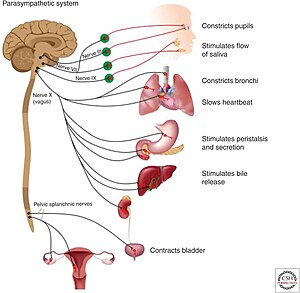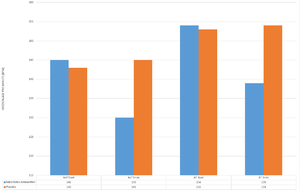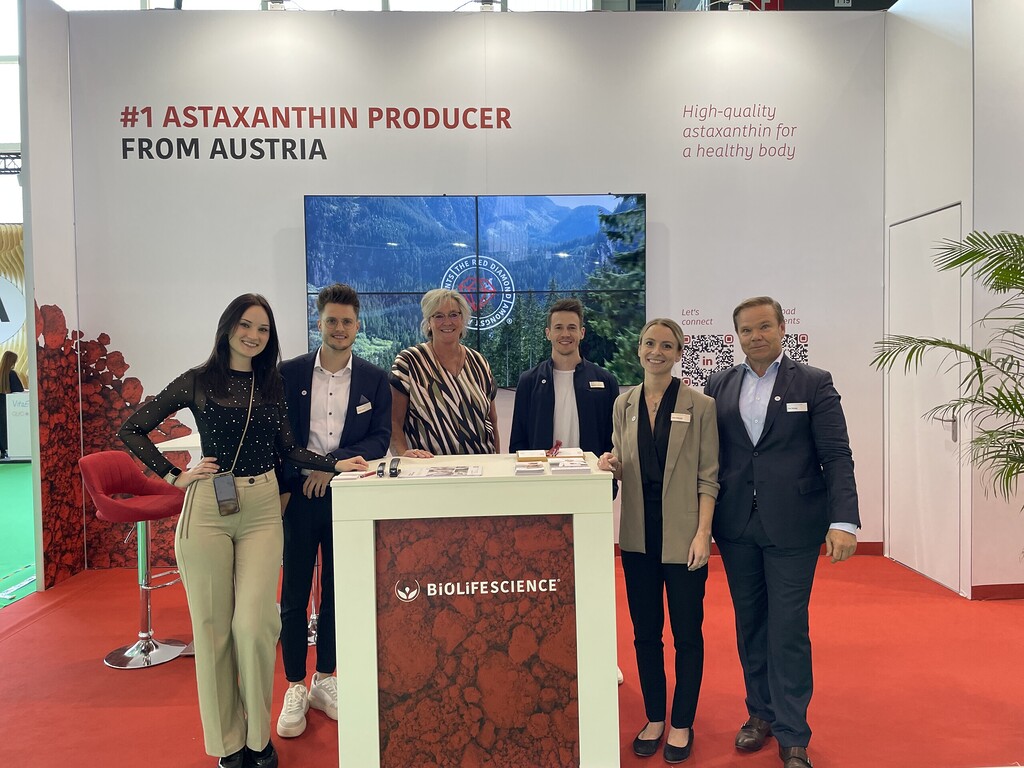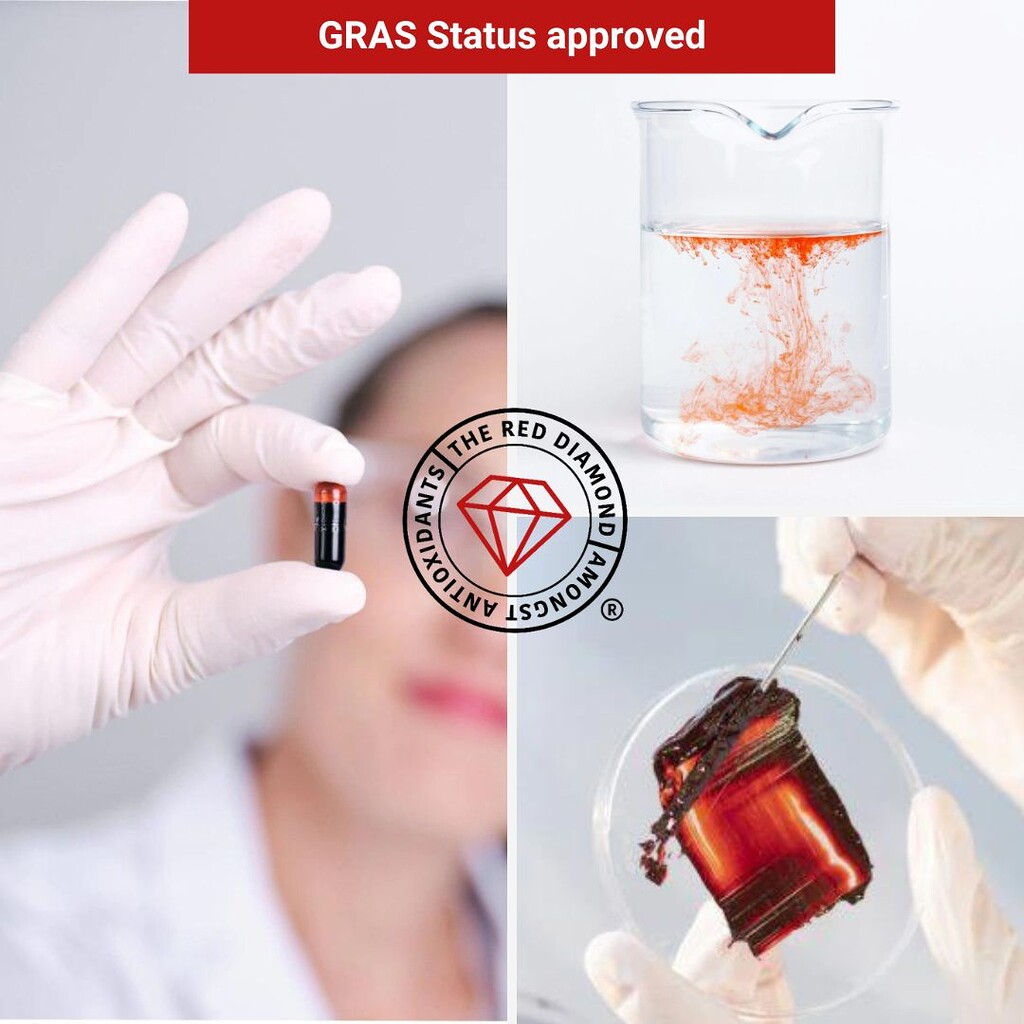With heart and brain: leading a healthy life
Astaxanthin, the red diamond amongst free radical scavengers, supports physical and mental fitness
Abstract
Natural astaxanthin has a strong inflammatory effect and is highly efficient fighting against reactive oxygen species (ROS). Astaxanthin’s power as strongest antioxidant has lately become increasingly known. Thanks to its special chemical structure, natural astaxanthin can pass the blood-brain barrier and take full effect – a property that only few compounds possess.[1]
Furthermore, the blood flow within the body is impacted in a positive way by an oral intake of natural astaxanthin, which is not only of great significance for cardiovascular health but also improves oxygen and nutrient transport to/towards the human brain.[2] A clinical study from 2019 has proven the holistic positive effect of natural astaxanthin on the psychophysiological heart-brain axis and enables new applications of the red diamond as co-therapeutic agent.[3]
The positive effect of natural astaxanthin on the cardiovascular system and on the brain
Chronic inflammations and increased oxidative stress significantly add to cardiovascular diseases and arteriosclerosis. In the case of arteriosclerosis, fat is deposited at the inner lining of the arterial walls, oxidates and may cause inflammations in the body. This can lead to a dangerous accumulation of plaques which constrict arteries and restrict perfusion and oxygen supply.[4],[5]
Astaxanthin obstructs the oxidation of low-density lipoprotein (LDL) and raises the level of high-density lipoprotein (HDL) cholesterol and adiponectin, a fat tissue hormone that is, together with other hormones, responsible for the regulation of the energy metabolism. Adiponectin originates from fat tissue and influences insulin activity in the glucose and fat metabolism. Extensive studies have demonstrated that astaxanthin can act pre-emptively against arteriosclerotic cardiovascular diseases as it may alleviate oxidative stress and resultant inflammations as well as lipid and glucose metabolism.[6],[7]
Cardioprotective effects of natural astaxanthin have, for instance, been ascertained in a clinical, randomised, placebo-controlled double-blind study. In the study, 44 probands with type 2 diabetes were daily supplemented with 8mg of astaxanthin over 8 weeks. The intake of astaxanthin led to a significant increase of the adiponectin concentration in the serum (p<0.05) and to a reduction of the visceral body fat mass. Moreover, a significant astaxanthin-induced reduction of triglyceride and LDL cholesterol in the blood and a lowering of the systolic blood pressure were demonstrated.[7] These results affirmed findings from previous studies and illustrated the high potential of natural astaxanthin to pre-emptively counteract arteriosclerotic cardiovascular diseases. Cognitive health also plays a major role in maintaining all important body functions.
In some ways, our brain is the control centre of the body. Due to several blood vessels, it has high oxygen consumption and is susceptible to oxidative stress. Especially with advancing age, natural antioxidative enzymes in the body become less effective, through which inflammations and, consequently, neurodegenerative diseases may occur. Astaxanthin is one of the less known compounds that can overcome all the blood-brain barrier by which its antioxidative properties are also enhanced in the human brain.[8],[9]
A randomised placebo-controlled double-blind study with 89 participants has shown that a 3-months nutritional supplement with a daily dose of 12mg of natural astaxanthin influences the cognitive performance of older probands. In this clinical study, various parameters to determine the cognitive performance like working memory, delayed memory to measure accuracy or short-term working memory were significantly enhanced in participants supplemented with astaxanthin. Probands who had been complaining of age-related obliviousness, showed better results regarding mental performance and multitasking.[10]
Positive influences of natural astaxanthin on the psychophysiological hearth-brain axis
Heart and brain communicate in various ways with each other. Best known are the communication regarding the nervous system and the electrical impulses that are triggered; in this context, particularly the sympathetic and parasympathetic nervous system can be mentioned. The sympathetic nerve fibres originate in the cervical ganglions and are also termed cardiac nerves (Nervi cardiaci); they are responsible for the acceleration of the heart rate. The parasympathetic nerve fibres that are responsible for relaxation and the deceleration of the heart rate stem from the tenth cranial nerve. These nerve fibres end in a neuroplexus, the so-called Plexus cardiacus, at the base of the heart. The stimulation of the Nervus vagus as therapeutic agent for various diseases plays a central role in today’s research (see Fig. 1).[12],[13]

Figure 1: Schematic diagram of the efferent (motoric) projections of the parasympathetic autonomic nervous system (ANS). Postganglionic axons from ganglionic cells innervate the heart (deceleration of the heart rate, reduction of the heart contractility) and other organs.[12]
Most recent studies from the year 2020 addressed that heart-brain axis and analysed the significance of antioxidants like natural astaxanthin in connection with cardiovascular and cognitive health. In this randomised, placebo-controlled double-blind study, 28 healthy probands were supplemented with a daily dose of 12mg of natural astaxanthin or with a respective placebo over 8 weeks. The interaction of the heart-brain axis was determined through cardiovascular stress tests (measuring of heart rate and oxygen consumption), investigation of the psychological state by a validated survey regarding the profile of mood state (POMS) as well as the evaluation of the global mood. The results of the astaxanthin reference group were astonishing.
The probands with astaxanthin supplementation showed a significant decrease of the average heart rate at submaximal stress intensity by 10 percent compared to the placebo group. As shown in Table 1, their heart beats per minute (bpm) could be reduced significantly after an 8-week supplement at the aerobic (AeT) as well as at the anaerobic (AT) threshold. This suggests a substantial easing of the cardiovascular system. After the astaxanthin supplementation, the probands did manual work at reduced heart rate and, hence, with higher cardiovascular efficiency, and were altogether more powerful.

Figure 1: The heart rates of the aerobic (AeT) and the anaerobic threshold (AT) were significantly lower after the supplementation of natural astaxanthin compared to PL (AeT; astaxanthin 130+17 vs. PL 145+14 and AT; astaxanthin 139+20 vs. PL 154+11, p<0.05), suggesting that the astaxanthin probands were able to do a certain degree of manual work with lower relative intensity or higher cardiovascular efficiency. Modified illustration based on the data from the study by S. Talbott et al., Effect of Astaxanthin supplementation on psychophysiological heart-brain axis dynamics in healthy subjects.[3]
Furthermore, there were significant improvements in the astaxanthin group regarding the evaluation of the psychological state. The parameters for tension, depression, anger, tiredness and confusion were significantly reduced and suggested an altogether positive state of mind. Natural astaxanthin, thus, influences the psychophysiological heart-brain axis verifiably positively and substantially supports the physical and mental wellbeing.[3]
Summary
An intake of micronutrients of highly dosed natural astaxanthin of 12mg significantly contributes to physical and mental fitness. While earlier studies have shown how astaxanthin positively influences heart health and the cognitive performance, the herein presented results are the first to prove that supplementation with natural astaxanthin supports the psychophysiological heart-brain axis with simultaneous enhancement of the physical and mental wellbeing. In addition to these psychophysiological benefits for the heart-brain axis, the results suggest that a supplementation with natural astaxanthin from the microalga Haematococcus pluvialis as co-therapeutic agent can support persons with physical and psychological needs. Particularly in old age, the degree of free radicals can be reduced through taking antioxidants as by doing so, endogenous antioxidative enzymes increasingly lose effect. However, also long-distance and ultra-distance endurance athletes (e.g., marathon runner, ironman triathletes and ultra-runner/-cyclists) benefit from nutritional supplementation with antioxidants as the physiological endurance as well as the psychological balance are strained, and their support could be a new approach to enhance the physical/mental performance. Due to the double effect of natural astaxanthin on the health of heart and brain, future studies will be even more important to also support other groups of persons significantly.
About BDI-BioLife Science
BDI-BioLife Science is specialised in the development of innovative technologies to manufacture high-quality algal valuable materials for the life-science industry. At the cultivation plant at Ökopark Hartberg/Austria, BDI-BioLife Science, using its in-house developed closed algae breeding method, produces premium natural astaxanthin, tailor-made for the cosmetics (AstaCos®) and nutritional supplement (AstaFit®) industries.

Melanie Kreuzer, BSc & Eduard Schnur, Ing.
Melanie Kreuzer is former Product Development Manager at BDI-BioLife Science. She graduated in sustainable food management from the JOANNEUM University of Applied Sciences in Graz, works on the refinement and optimisation of algae-based raw materials, on the development of specific product concepts and is responsible for sales in Europe except DACH-Region and Global Key Accounts
Eduard Schnur is Product Development Manager at BDI-BioLife Science. He has many years of professional experience as an auditor in the food and agricultural industry, where he worked in a private testing institute for food safety. He also graduated in sustainable food management from the FH JOANNEUM in Graz and is currently involved in product development and is responsible for sales in Asia & Middle East Region and Global Key Accounts


